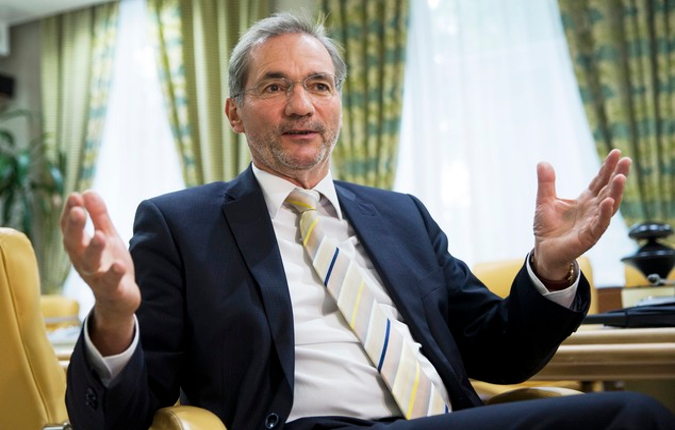|
|
German-Russian Petersburg Dialogue: West Needs Courage, Rather Than Dubious Show of Military Strength
15 July 2016
EIRNS—As the German-Russian "Petersburg Dialogue" reconvened this afternoon after a hiatus of almost three years, Matthias Platzeck, chairman of the German-Russian Forum, who participated among about 250 industrialists, politicians, experts, and NGO representatives, reiterated his criticism of the NATO build-up on Russia’s borders. What the West really needs, rather than this dubious show of strength, is the real courage to try detente with Russia, Platzeck said, recalling the progress made through detente and dialogue during the "Ostpolitik" period with the Soviet Union 45 years ago. He added that the enormous peace dividend contributed by the Russians despite their brutal suffering during the world war, is not honoured in the West today, but it should be. Not having too many expectations for the first session of the Dialogue since late 2013, Platzeck said that it is a first, long-overdue step in the right direction. Vladislav Belov, director of the German Studies Center at the Russian Academy of Sciences, hit a similar vein, saying that rather than focusing on the things that separate Germany and Russia at present, "we should find out what we can do together." What neither addressed directly, however, is the urgency of both sides beginning a serious discussion on how to jointly develop Eurasia, lifting sanctions so that the productivity of German industry can be brought to bear for the benefit of all. An approximation of that will occur, though, in the German-Russian Raw Materials Forum, which is a high-powered industrial-scientific working group attached to the Dialogue, which will hold a separate conference in Germany in November. This is the first almost-full-format meeting of the Petersburg Dialogue since November 2013, but it is fraught with problems caused by some circles on the German side, even while they pay plenty of lip service to the "commitment to dialogue." German co-chairman Ronald Pofalla is pursuing a strategy to beat back the influence of anti-sanctions circles, such as the German-Russian Forum, by increasing the role of NGOs in the Dialogue. German President Joachim Gauck is boycotting; Chancellor Merkel, who is in Ulan Bator for the Asia-Europe Meeting (ASEM) summit today, will at least have a message read at the event; Bundestag President Norbert Lammert called off his attendance, so that the Russian side felt compelled to cancel a planned keynote by State Duma President Sergey Naryshkin, whose name is still on the EU sanctions list. The highest-ranking German politician will be Hamburg Mayor Olaf Scholz, giving a keynote, and from Russia, Vladimir region Governor Svetlana Orlova will do the same. Scholz said that he is proud to be in St. Petersburg for this event, since it is a |


